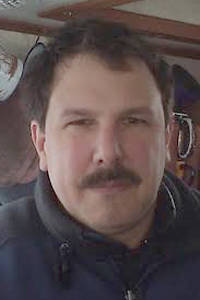Things are getting sideways out there in the ocean. Nearly every fishermen who’s motored in recent years along the Peninsula coast and around to Bristol Bay would probably agree. I do it every year, working my way from Kodiak to Naknek over the course of a week. And the last 10 years, with increasingly warmer water, have brought one weird phenomenon after another. Massive sea bird die offs. Whale strandings.
Extraterrestial looking tropical species on the beach. The forage fish are heading for colder deeper waters at odd times.
And that’s thrown off all kinds of fisheries, not least salmon runs, where a lot of us make our money.
Now, the Pebble Mine is threatening to squeeze us from the opposite direction – on land. The open pit mine is slated for development in the headwaters of our greatest remaining salmon fishery – and one that may be a bright spot in the face of climate change and shifting ocean conditions. It’s a place that supports thousands of Alaskan livelihoods, including mine. The annual return of tens of millions of sockeye breathe life into the region – they are food, jobs, culture.
It’s time for us to push back on these foreign mining companies that would pull the rug out from under us. One way to do that is by supporting the Stand for Salmon ballot initiative that’s just been certified for a vote later this year.
The initiative defines responsible development practices, particularly for those mining companies that have a history of leaving messes for Alaskans to clean up – and, in Pebble’s case, have a plan that sacrifices our fisheries to get to their gold.
This initiative will make sure we don’t trade one resource for another as we grow. And it will ensure that foreign mining corporations have to pay for the clean-up of mega development projects on or near vital wild salmon habitat – so that Alaska taxpayers won’t be left holding the bill.
The fishing industry is integral to the health of the entire state – it’s our largest private sector employer. Salmon fishing provides jobs for more than 30,000 Alaskans and generates $2 billion in economic activity, while the fishing industry in Alaska provides $722 million dollars in taxes that help pay for schools, police, health care, and infrastructure.
In addition to helping power our state’s economy, Bristol Bay’s fisheries are the envy of the world – with sportfishers literally flying in from around the world to experience them and take home a piece of them.
We know that as the oceans warm, the more northern ranges for wild salmon will have a higher likelihood of surviving and thriving. That gives Bristol Bay salmon higher odds of staying healthy in the coming decades compared to lower 48 runs. That is, if – and only if – we can keep the lakes and big river systems on land in good shape.
The same goes for the rest of Alaska: as oceans change, strong habitat in rearing streams is the best hedge we can give salmon against the unpredictable life they are facing out in the ocean.
And that’s what the Stand for Salmon initiative is all about – keep spawning and rearing streams healthy so we will have wild salmon to eat and make a living from in the future.
Right now, we are at a turning point as a state. If we don’t do something to take care of what we’ve got, the citizens of Alaska – all of us – will be left holding the (heavily polluted) bag in 20 years. All the gold will be gone. All the copper will gone. And the fish will be gone, too. The natural bounty that supports us and defines us will be drained right out of the place. There won’t be 20 million fish running up the Kvichak any longer.
If we think the world is upside down now, we haven’t seen anything yet.
Alexus Kwachka is a commercial fisherman based in Kodiak and a member of the North Pacific Fishery Management Council Advisory Panel.

